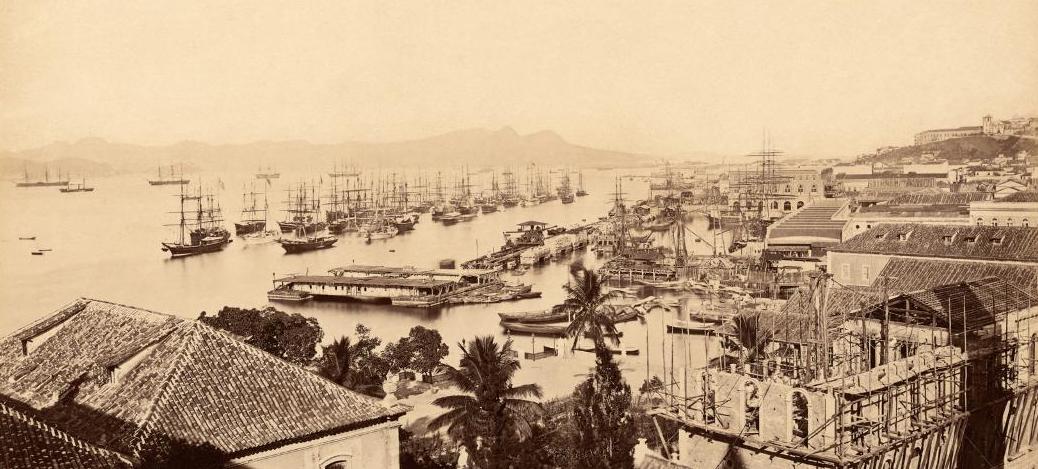1001 Nights at the Cinema
Episode 424
Feed | iTunes | GooglePlay | SoundCloud
The 1001 Nights, an Arabic collection of tales, have been translated into numerous languages and adapted to many cultural contexts. In this episode, we explore the impact of the 1001 Nights on the history of cinema. As our guest Samhita Sunya explains, the 1001 Nights corpus influenced Western cinema from the earliest decades of the medium's rise. However, in our conversation, we focus on the cinematic influence of the tales beyond Europe and North America. From Japan and South Asia to Iran and the Caucasus, we discuss the many forms the 1001 Nights have assumed in cinema the world over and reflect on the significance of the often ignored connections between these different world regions.
Stream via SoundCloud
Contributor Bios
 |
Samhita Sunya is an Assistant Professor of Cinema in the Department of Middle Eastern & South Asian Languages & Cultures at the University of Virginia. Supported by a Spring 2018 residence at Yale University’s MacMillan Center for International and Area Studies and 2018-2019 Mellon Humanities Fellowship, her current project builds on research conducted at the National Film Archive of India as well as the American University of Beirut, exploring South-South histories of cinema over the decades of the Cold War.
|
 |
Chris Gratien is Assistant Professor of History at University of Virginia, where he teaches classes on global environmental history and the Middle East. He is currently preparing a monograph about the environmental history of the Cilicia region of the former Ottoman Empire from the 1850s until the 1950s. |
Credits
Episode No. 424
Release Date: 30 August 2019
Recording Location: Charlottesville, VA
Audio editing by Chris Gratien
Bibliography and clips courtesy of Samhita Sunya
Release Date: 30 August 2019
Recording Location: Charlottesville, VA
Audio editing by Chris Gratien
Bibliography and clips courtesy of Samhita Sunya
Clips
Select Bibliography
View the "A Thousand and One Nights at the Cinema" syllabus by Samhita Sunya below:
Look out for a forthcoming edited volume in the Modern Language Association's Approaches to Teaching World Literature series, dedicated to A Thousand and One Nights. Samhita Sunya is one of the contributors to this collection.
Secondary Sources & Critical Editions
Armes, Roy. “The poetic vision of Nacer Khemir.” Third Text 24.1 (2010): 69-82.
Haase, Donald. “The Arabian Nights, Visual Culture, and Early German Cinema.” Fabula 45, no. 3-4 (2004): 261-274.
Haddawy, Hussein, tr. The Arabian Nights (New Deluxe Edition). With an introduction by Muhsin Mahdi. New York: W.W. Norton & Company, 2008.
Kapse, Anupama. “Around the World in 80 Minutes: Douglas Fairbanks and the Indian Stunt Film.” Silent Cinema and the Politics of Space. Eds. Jennifer Bean, Laura Horak, and Anupama Kapse. Bloomington: Indiana University Press, 2014. 210-234.
Kelly, Kathleen Coyne. “Medieval Times: Bodily Temporalities in The Thief of Bagdad (1924), The Thief of Bagdad (1940), and Aladdin (1992).” Hollywood in the Holy Land: Essays on Film Depictions of the Crusades and Christian-Muslim Clashes. Jefferson: McFarland, 2014. 200-224.
Lundell, Michael James. “Pasolini’s Splendid Infidelities: Un/Faithful Film Versions of The Thousand and One Nights.” Adaptation 6, no. 1 (2012): 120-127.
Makdisi, Saree, and Felicity Nussbaum, eds. The Arabian Nights in Historical Context: Between East and West. Oxford: Oxford University Press on Demand, 2008.
Marzolph, Ulrich. “The Persian Nights: Links Between the Arabian Nights and Iranian Culture.” Fabula 45, no. 3-4 (2004): 275-293.
Mirbakhtyar, Shahla. “The Pioneers of the New Cinema.” Iranian Cinema and the Islamic Revolution. Jefferson: McFarland, 2006. 39-49.
Ouyang, Wen‐Chin. “Whose story is it? Sindbad the Sailor in Literature and Film.” Middle Eastern Literatures 7, no. 2 (2004): 133-147.
Papazian, Elizabeth A. “Ethnography, Fairytale, and Perpetual Motion in Sergei Paradjanov's Ashik-Kerib.” Literature/Film Quarterly 34.4 (2006): 303.
Samatar, Sofia. “Spectacle of the Other: Recreating A Thousand and One Nights in Film.” Fairy-Tale Films Beyond Disney. Eds. Jack Zipes, Pauline Greenhill, and Kendra Magnus-Johnston. London: Routledge, 2015. 52-65
Stringer, Julian. “Global cities and the international film festival economy.” Eds. Mark Shiel and Tony Fitzmaurice. Cinema and the City: Film and Urban Societies in a Global Context (2001): 133-144.
Thomas, Rosie. “Distant Voices, Magic Knives: Lal-e-Yaman and the Transition to Sound in Bombay Cinema.” Bombay Before Bollywood: Film City Fantasies. Albany: State University of New York Press, 2013. 66-91.
Thomas, Rosie. “Thieves of the Orient: The Arabian Nights in Early Indian Cinema.” Bombay Before Bollywood: Film City Fantasies. Albany: State University of New York Press, 2013. 31- 65.
Widdins, Emma. “Primitive Sensations.” Socialist Sense: Film, Feeling, and the Soviet Subject: 1917 - 1940. Bloomington: Indiana University Press, 2017. 165-202.
Fiction
Poe, Edgar Allan. “The Thousand-and-Second Tale of Scheherazade.” The Short Fiction of Edgar Allan Poe: An Annotated Edition Eds. Stuart Levine and Susan Levine. Urbana: Illinois University Press, 1976. 504-511.
Rushdie, Salman. Two Years Eight Months and Twenty-Eight Nights. New York: Random House, 2015
Wilson, G. Willow. Alif the Unseen. London: Atlantic Books, 2012.
Film/TV
Aladdin (Ron Clements and John Musker, 1992)
Alibaba and the Forty Thieves (Homi Wadia, 1954)
Arabian Nights (Pier Paolo Pasolini, 1974)
Binbir Gece (Kudret Sabancı, 2006-2009)
Das Wachfigurenkabinett / Waxworks (Paul Leni, 1924)
Der Mude Tod (Fritz Lang, 1921)
Le Palais Des Mille Et Une Nuits / The Palace of the Arabian Nights (George Méliès, 1905)
Scheherazade’s Diary (Zeina Daccache, 2013)
Shabe Ghuzi / Night of the Hunchback (Farrokh Ghaffari, 1965)
Sumrun (Ernst Lubitsch, 1920)
The Arabian Nights Volume 1-3 (Miguel Gomes, 2015)
The Dove’s Lost Necklace (Nacer Khemir, 1991)
The Thief of Bagdad (Raoul Walsh, 1924)
Thief of Bagdad (Michael Powell, 1940)











Comments
Post a Comment
Due to an overwhelming amount of spam, we no longer read comments submitted to the blog.